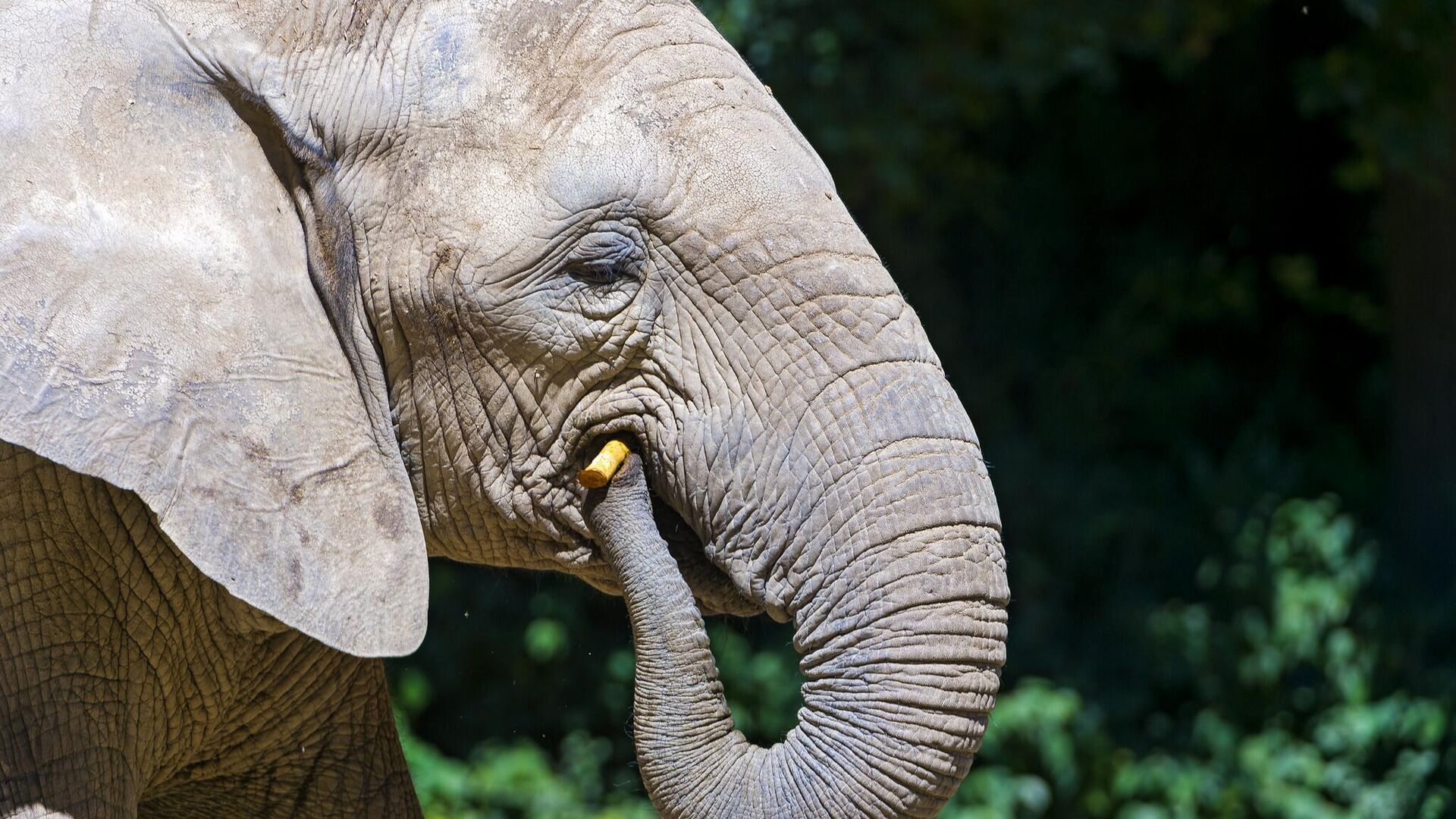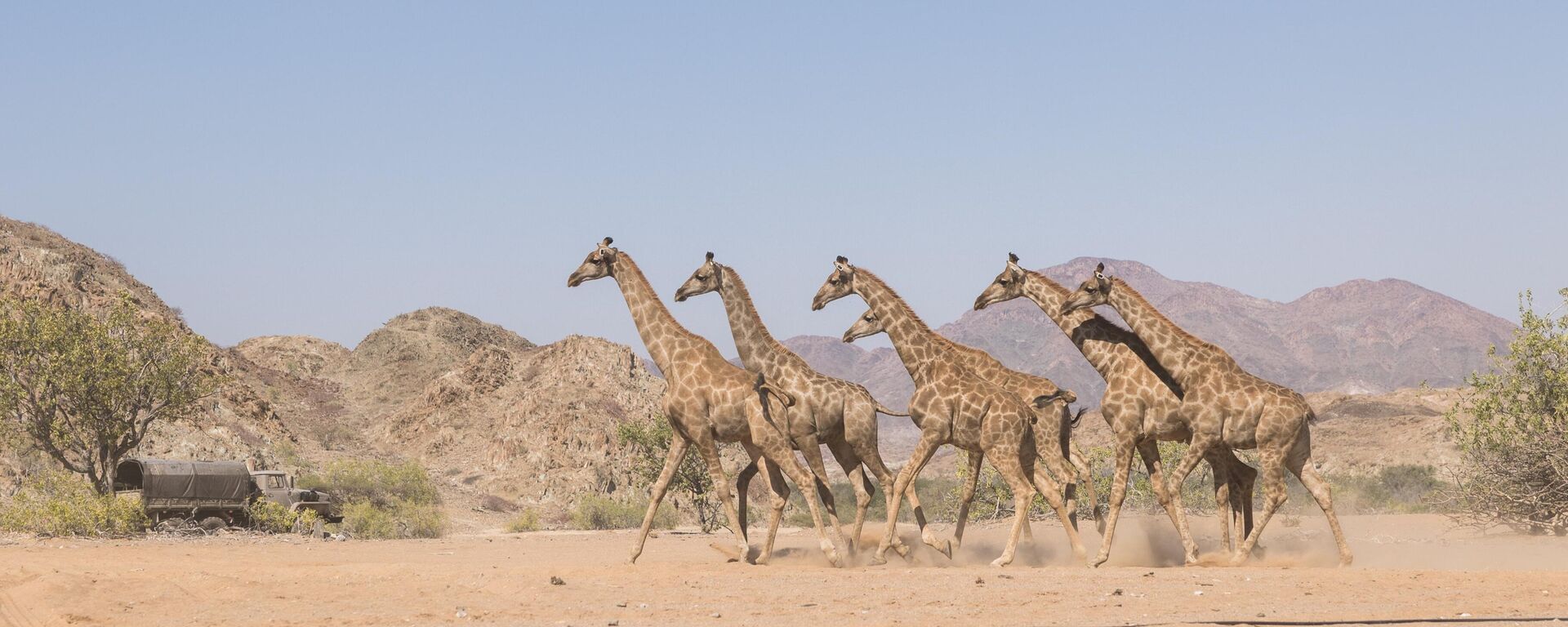https://en.sputniknews.africa/20230709/tastes-differ-elephants-change-diet-based-on-preferences-study-says-1060439102.html
Tastes Differ: Elephants Change Diet Based on Preferences, Study Says
Tastes Differ: Elephants Change Diet Based on Preferences, Study Says
Sputnik Africa
To draw their conclusions, scientists studied two families of elephants, the Royals and Artists, each consisting of four-five adult females living in a... 09.07.2023, Sputnik Africa
2023-07-09T18:54+0200
2023-07-09T18:54+0200
2023-07-10T09:01+0200
science
animals
wildlife
sub-saharan africa
kenya
east africa
research
nature
https://cdn1.img.sputniknews.africa/img/07e7/07/09/1060440415_0:106:2048:1258_1920x0_80_0_0_baaf050409b4f2b7a9f3a4a464a3df6d.jpg
An analysis of the eating habits of two groups of elephants in Kenya showed that elephants vary their diet depending on their preferences and physiological needs, according to a study by Brown University in the US.To determine the daily diet of elephants, the scientists combined analyses of carbon stable isotopes from the feces and hair of elephants with dietary DNA metabarcoding, GPS-tracking, and remote-sensing data.According to one member of the group of scientists, Tyler Kartzinel, DNA metabarcoding, which was used for the first time to track the social feeding of animals, helped the study because elephants' eating habits are extremely difficult to track by eye.The analysis revealed that nutritional differences between individuals were often far greater than previously thought, even among family members who foraged together on a particular day.In addition, scientists concluded that during the dry seasons, elephants converged on a relatively similar diet, but during the rainy season, they were more varied in their choice of food.These findings, the researchers said, could serve environmental biologists who will be aware that a diverse diet is necessary to protect elephants and other animal species and their development.
https://en.sputniknews.africa/20230709/message-of-hope-14-angolan-giraffes-return-home-from-namibia-1060430517.html
kenya
east africa
Sputnik Africa
feedback@sputniknews.com
+74956456601
MIA „Rossiya Segodnya“
2023
Maxim Grishenkin
https://cdn1.img.sputniknews.africa/img/07e7/0a/17/1063018107_0:0:1104:1103_100x100_80_0_0_03090c85a11f5d2e8a19cf1d989443c9.jpg
Maxim Grishenkin
https://cdn1.img.sputniknews.africa/img/07e7/0a/17/1063018107_0:0:1104:1103_100x100_80_0_0_03090c85a11f5d2e8a19cf1d989443c9.jpg
News
en_EN
Sputnik Africa
feedback@sputniknews.com
+74956456601
MIA „Rossiya Segodnya“
Sputnik Africa
feedback@sputniknews.com
+74956456601
MIA „Rossiya Segodnya“
Maxim Grishenkin
https://cdn1.img.sputniknews.africa/img/07e7/0a/17/1063018107_0:0:1104:1103_100x100_80_0_0_03090c85a11f5d2e8a19cf1d989443c9.jpg
science, animals, wildlife, kenya, east africa, research, nature
science, animals, wildlife, kenya, east africa, research, nature
Tastes Differ: Elephants Change Diet Based on Preferences, Study Says
18:54 09.07.2023 (Updated: 09:01 10.07.2023) To draw their conclusions, scientists studied two families of elephants, the Royals and Artists, each consisting of four-five adult females living in a semi-arid habitat in the Samburu and Buffalo Springs National Reserves, Kenya.
An analysis of the eating habits of two groups of elephants in Kenya showed that elephants vary their diet depending on their preferences and physiological needs, according to a
study by Brown University in the US.
To determine the daily diet of elephants, the scientists combined analyses of carbon stable isotopes from the feces and hair of elephants with dietary DNA metabarcoding, GPS-tracking, and remote-sensing data.
According to one member of the group of scientists, Tyler Kartzinel, DNA metabarcoding, which was used for the first time to track the social feeding of animals, helped the study because elephants' eating habits are extremely difficult to track by eye.
"The reason is that these animals are difficult and dangerous to observe from up-close, they move long distances, they feed at night and in thick bush and a lot of the plants they feed on are quite small," Kartzinel said.
The analysis
revealed that nutritional differences between individuals were often far greater than previously thought, even among family members who foraged together on a particular day.
In addition, scientists concluded that during the dry seasons, elephants converged on a relatively similar diet, but during the rainy season, they were more varied in their choice of food.
These findings,
the researchers said, could serve environmental biologists who will be aware that a diverse diet is necessary to protect elephants and other animal species and their development.
"Wildlife populations need access to diverse dietary resources to prosper," Kartzinel said. "Each elephant needs variety, a little bit of spice - not literally in their food, but in their dietary habits."



